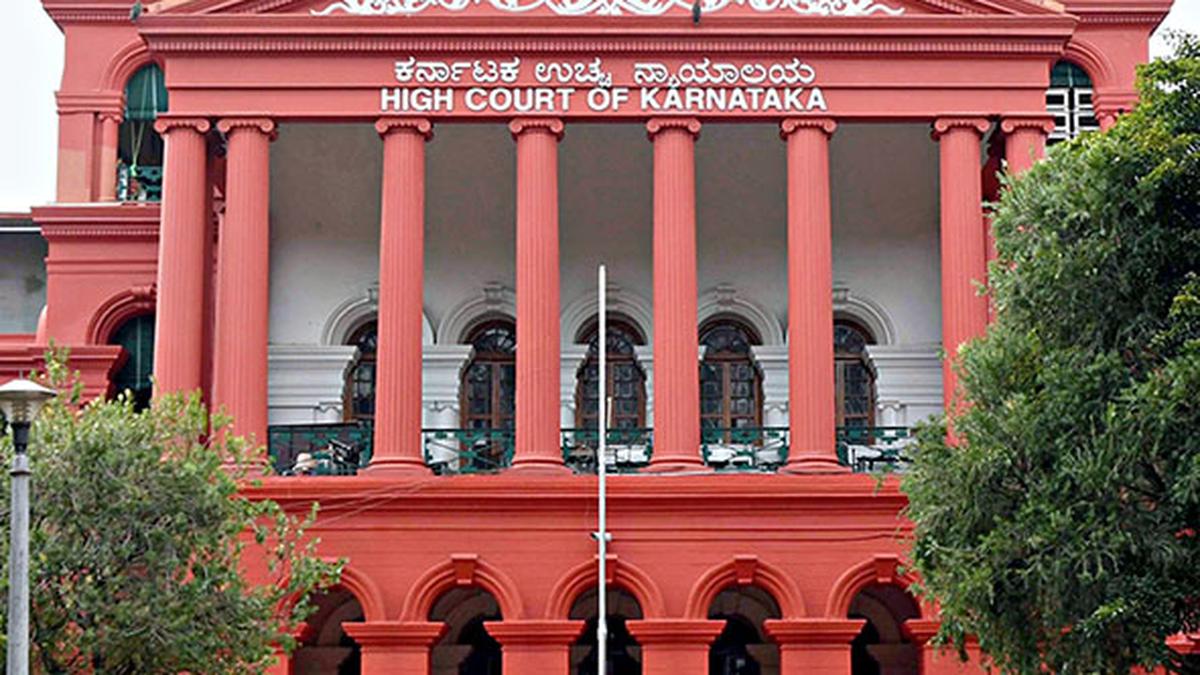The Karnataka High Court has disposed of the plea filed by IPS officer Arun Chakravarthy, bringing a crucial chapter in a high-profile administrative case to a close. The plea, which sought intervention in ongoing departmental proceedings, was argued over several hearings before the bench delivered its verdict. The court’s decision has significant implications for both the officer’s career and the broader administrative machinery, reinforcing legal boundaries regarding service matters and procedural adherence in state bureaucracies.
Chakravarthy’s plea had challenged certain internal decisions made by the state government and the police department, claiming procedural lapses and violations of service norms. While the specifics of the case involve sensitive administrative processes, legal experts noted that the disposal signifies the court’s emphasis on adherence to established norms rather than re-evaluating administrative discretion. The court, in its order, highlighted that officers must seek remedies through proper channels and that judicial intervention is limited to reviewing procedural fairness rather than policy decisions.
The matter had attracted attention not only within the police department but also among civil society and media circles, given Chakravarthy’s prominence as an IPS officer in Karnataka. The case has sparked discussions about accountability, transparency, and the limits of judicial oversight in service-related disputes. Officials have welcomed the clarity provided by the court, which reinforces the framework within which departmental grievances must be addressed, ensuring both officer rights and administrative integrity are maintained.
Administrative and Legal Implications
The disposal of the plea emphasizes that while officers have legal recourse, judicial intervention is circumscribed by procedural compliance and statutory limits.
It also sends a message to other officers about the importance of adhering to departmental processes before approaching courts.
The disposal of Arun Chakravarthy’s plea also brings into focus the importance of mentoring and guidance for young IPS officers navigating complex administrative hierarchies. Senior officials stress that understanding the nuances of service rules, departmental protocols, and internal grievance procedures is essential to avoid misunderstandings that could escalate into legal challenges. Such guidance can strengthen confidence and professional conduct across the force.

Analysts note that high-profile cases like this one often influence training programs for civil servants and police officers. Incorporating lessons from Arun Chakravarthy’s experience into academies and workshops can help officers better understand their rights, responsibilities, and the limits of judicial intervention. This proactive approach aims to reduce friction between departmental authority and individual officers while enhancing administrative efficiency.
The case also underlines the role of documentation in administrative decision-making. Proper record-keeping, clear communication of orders, and adherence to procedural timelines are crucial to ensure fairness and prevent disputes from escalating. Experts highlight that in service matters, the presence of transparent and verifiable records often determines the outcome of legal challenges, as evidenced in the High Court’s observations.
Finally, the disposal highlights the delicate balance between transparency and operational confidentiality in police administration. While officers have the right to challenge decisions, publicizing sensitive internal matters can affect both morale and public perception. The verdict demonstrates that courts prioritize procedural correctness while respecting the operational autonomy of police departments, maintaining both institutional integrity and accountability.
Upholding Institutional Frameworks
Legal experts suggest that the High Court’s order strengthens institutional frameworks, ensuring that administrative decisions are respected when taken in accordance with service rules.
Officials have highlighted that the verdict underscores the balance between individual rights and the collective functioning of the state bureaucracy.
Moving Forward for Arun Chakravarthy
While the plea has been disposed of, IPS officer Arun Chakravarthy now faces the option of pursuing internal departmental remedies or other legal avenues, consistent with the court’s guidance.
Authorities emphasize that procedural adherence and transparency remain the key pillars for resolving disputes, and that officers must utilize institutional mechanisms to address grievances efficiently.
The verdict is also likely to influence ongoing discussions about reforming grievance redressal systems within the Karnataka Police Department. Experts suggest that the case highlights the need for streamlined processes that can provide timely resolutions while maintaining fairness, reducing the necessity for judicial intervention in routine service matters.
Civil society observers have welcomed the court’s decision for reinforcing accountability within the system, noting that such high-profile cases set important precedents for both officers and administrative authorities. The balance between individual rights and institutional procedures is expected to guide similar cases in the future.
Officials have reiterated that this disposal should encourage officers to work within defined rules, enhancing the overall efficiency and transparency of the administrative framework. The verdict, while concluding this particular plea, underscores ongoing efforts to ensure governance and service standards in Karnataka remain robust and fair
The case involving IPS officer Arun Chakravarthy had drawn attention due to the officer’s prior prominence in handling high-profile investigations. His professional trajectory had made him a well-known figure within the Karnataka Police Department, which added a layer of public interest to the proceedings. Observers noted that the disposal of the plea marks an important instance of the judiciary maintaining its boundaries in service matters, highlighting the distinction between administrative discretion and legal scrutiny.
Chakravarthy’s plea had alleged procedural irregularities in departmental actions, questioning certain administrative decisions regarding postings and internal inquiries. The High Court, however, made it clear that while officers have the right to challenge decisions, the judiciary is not positioned to override executive discretion if procedures were generally followed. Legal analysts pointed out that this reinforces the principle that service matters largely remain within the domain of the department unless a clear violation of law is evident.
The disposal has led to debates within bureaucratic circles about the scope and limits of judicial review in personnel matters. Experts suggest that the verdict may serve as a cautionary precedent for other officers considering litigation against departmental decisions, emphasizing that internal grievance redressal mechanisms should be exhausted first. This is seen as a step toward streamlining administrative processes while reducing judicial congestion.
For Arun Chakravarthy personally, the disposal means he must now consider available departmental remedies or appeals through statutory mechanisms. Legal experts note that the officer’s options include representations to the Department of Personnel and Administrative Reforms or the Police Department’s internal appellate authorities. These avenues are designed to resolve grievances without judicial intervention, maintaining the hierarchical structure of service governance.
The case has highlighted the importance of transparent internal procedures within the police department. Officials noted that clear documentation, formal notices, and procedural fairness are critical to ensure that officers’ rights are protected. The High Court’s verdict underlines that compliance with these processes is central to the legitimacy of administrative decisions and reduces the likelihood of legal challenges.

Observers have also drawn attention to the potential impact on morale within the police force. High-profile disputes, if not resolved through proper channels, can affect confidence in administrative systems. The court’s disposal, by reaffirming procedural compliance, may help in restoring trust among officers that grievances will be addressed systematically within the institutional framework.
The case also sheds light on the broader discussion about service rules for IPS officers. Given their strategic roles in law enforcement, officers are subject to both statutory rules and departmental guidelines. Experts note that the balance between authority and accountability is delicate, and this verdict reinforces the importance of adhering to these guidelines to maintain both operational efficiency and individual rights.
Civil society and media commentators have examined the implications of the verdict in terms of governance transparency. By highlighting that judicial oversight has limits, the disposal implicitly stresses the importance of robust administrative systems. Transparent processes within departments ensure that officers have legitimate avenues to raise concerns without resorting to court intervention.
The High Court’s decision may also influence policy discussions regarding the modernization of grievance redressal mechanisms within Karnataka’s police department. Experts argue that structured and time-bound processes could reduce the frequency of high-profile litigations, ensuring that officers feel their concerns are addressed promptly and fairly within institutional channels.
Legal analysts suggest that the verdict reiterates the judiciary’s focus on procedural propriety rather than the substantive merits of administrative discretion. This distinction is crucial for maintaining separation of powers between the executive and judiciary, ensuring that departmental authorities retain control over personnel management while officers are guaranteed procedural fairness.
The disposal has been welcomed by senior police officials as reinforcing administrative discipline. Officials indicate that officers must understand the significance of internal reporting, timely submissions, and following prescribed channels for appeals. Compliance with established service rules not only protects the officer’s career but also enhances the integrity of departmental operations.
The case also reflects on the increasing trend of service-related disputes reaching courts in India. Experts note that while judicial intervention is necessary in cases of arbitrary action, the judiciary’s reluctance to intervene in routine departmental matters is a reminder that administrative frameworks must be strong, transparent, and efficient. Karnataka’s police department may use this verdict to strengthen internal monitoring and ensure timely resolution of complaints.
From a governance perspective, the disposal emphasizes accountability and predictability in administrative actions. Officers and authorities are reminded that decisions must be well-documented, legally compliant, and procedurally transparent. This ensures that disputes are minimized, and if they do arise, they can be resolved within structured institutional frameworks without prolonged litigation.

Finally, the case highlights the broader importance of balancing individual rights with institutional integrity. The High Court’s order underlines that while officers have avenues to address grievances, respecting hierarchical and procedural systems is essential. This approach protects both the functioning of law enforcement agencies and the careers of officers like Arun Chakravarthy, fostering a culture of accountability, fairness, and operational efficiency.
Follow: Karnataka Government
Also read: Home | Channel 6 Network – Latest News, Breaking Updates: Politics, Business, Tech & More

